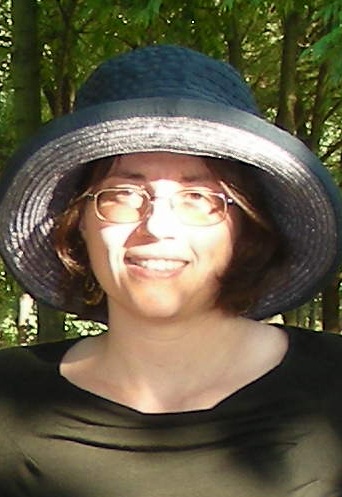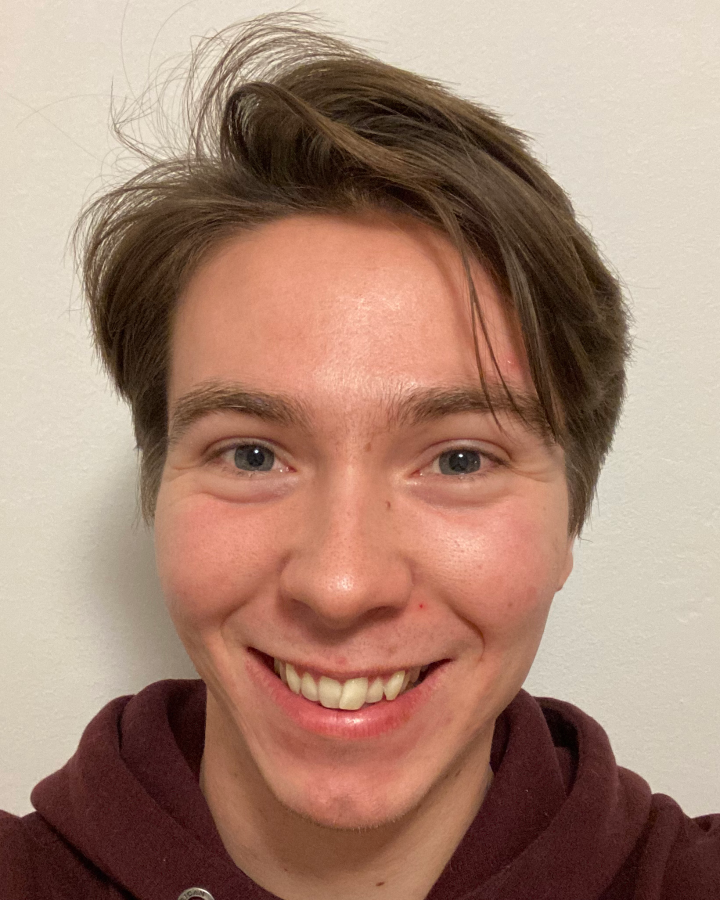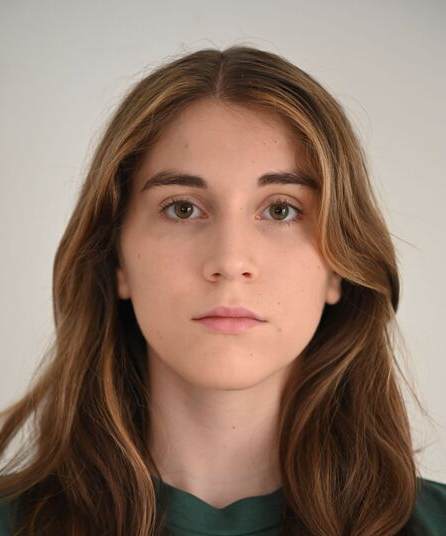Gerti Kappel
O.Univ.Prof.in Dipl.-Ing.in
Mag.a Dr.in techn.
Gerti Kappel
- Email: gertrude.kappel@tuwien.ac.at
- Phone: +43-1-58801-18870
- Office: HC0215 (1040 Wien, Favoritenstrasse 9)
- About:
Gerti Kappel is full professor at the Institute of Information Systems Engineering at TU Wien, chairing the Business Informatics Group. Prior to that, from 1993 to 2001, she was a full professor of computer science (database systems) and head of the Department of Information Systems at the Johannes Kepler University Linz.
From 2016 to 2019, she was a member of the dean’s team of the Faculty of Informatics responsible for research, diversity, and financial affairs. Since the beginning of 2020 she acts as the dean of the Faculty of Informatics at TU Wien.
Her current research interests include Model Engineering, Web Engineering, and Process Engineering, with a special emphasis on cyber-physical production systems. Striving for the unity of research and teaching, she co-authored and co-edited among others „UML@Work“ (dpunkt.verlag, 3rd ed, 2005), „UML@Classroom“ (Springer, 2015), and „Web Engineering“ (Wiley, 2006).
- Orcid: 0000-0002-4758-9436
- Keywords: Process Engineering, Data Engineering, Services Engineering, UML and XML, Business Process Management (BPM), Model Engineering, Workflow Management Systems (WFMS), Web Engineering, Object Orientation, Software Engineering
- Roles: Head of Services, Full Professor
Publications
Keywords:
Astract: As the approach of Model-Driven Engineering (MDE) is becoming mainstream in modern software development practices, there is a growing variety of tools to support the lifecycle of modeling artifacts. Standards such as Meta-Object Facility (MOF) defined by the Object Management Group (OMG) help to avoid information loss when trying to integrate multiple modeling tools across their technical boundaries. The Eclipse-based modeling tool SERAPIS by Sphinx IT Consulting defines a proprietary meta-language which is not compliant to MOF or any other modeling standard. As a consequence, metamodels specified in this meta-language and therefore also the instantiations of these metamodels cannot be interchanged with existing tools based on standards such as MOF which results in a vendor-lock for customers. The contribution of this master thesis is to develop a transformation approach allowing to translate metamodels and models from the SERAPIS technical space to the Eclipse Modeling Framework (EMF), which employs the meta-language Ecore as the de facto standard corresponding to MOF. The strategy to achieve this is based on an approach presented in the Ph.D. thesis by Dr. Manuel Wimmer who suggests a semi-automatic transformation for metamodels by mapping the corresponding meta-languages. Moreover, we specialize this approach to also enable the automatic transformation of SERAPIS models based on the mappings of their metamodels. The transformation approach developed in this work is implemented in the Eclipse IDE in order to prove its feasibility and to evaluate the generated results.
Margreiter, G. (2013). SERAPIS 2 Ecore - bridging two modeling spaces in Eclipse [Diploma Thesis, Technische Universität Wien]. reposiTUm. https://doi.org/10.34726/hss.2013.21938
Guided Merging of Sequence Diagrams
 Magdalena Widl
Magdalena Widl Armin Biere
Armin Biere Petra Kaufmann
Petra Kaufmann Uwe Egly
Uwe Egly Marijn Heule
Marijn Heule Martina Seidl
Martina Seidl Hans Tompits
Hans Tompits
Widl, M., Biere, A., Kaufmann, P., Egly, U., Heule, M., Kappel, G., Seidl, M., & Tompits, H. (2013). Guided Merging of Sequence Diagrams. In Software Language Engineering (pp. 164–183). Lecture Notes in Computer Science Volume 7745. https://doi.org/10.1007/978-3-642-36089-3_10
Towards Living Inter-Organizational Processes
 Ruth Breu
Ruth Breu Schahram Dustdar
Schahram Dustdar Johann Eder
Johann Eder Julius Köpke
Julius Köpke Philip Langer
Philip Langer Jürgen Mangler
Jürgen Mangler Jan Mendling
Jan Mendling Gustaf Neumann
Gustaf Neumann Stefanie Rinderle-Ma
Stefanie Rinderle-Ma Stefan Schulte
Stefan Schulte Stefan Sobernig
Stefan Sobernig Barbara Weber
Barbara Weber Birgit Hofreiter
Birgit Hofreiter Kwei-Jay Lin
Kwei-Jay Lin Erik Proper
Erik Proper Jorge Sanz
Jorge SanzKeywords:
Astract: Business Process Management (BPM) has gained significant adoption in practice for enabling organizations to increase their effectiveness, efficiency, and flexibility. This broad adoption has not only been fostered by a rich and wellestablished theory to model, analyze, simulate, and enact business processes, but also by internationally accepted standards and mature technologies. Caused by the ever increasing speed and volatility of markets and the dynamics of new technologies, such as cloud infrastructures and mobile communications, we face a new generation of business processes, which we refer to as living inter-organizational processes. Such processes are not in control of one single organization; instead, they are enacted by multiple organizations, where no participating party possesses full control over the entire process. Such processes often involve a high number of actors that might even be unknown in advance. These actors require various degrees in participation, they are acting in heterogeneous environments. Moreover, such processes are often weakly structured or designed in an ad-hoc manner, and have to be continuously subject to evolution. Unfortunately, existing theories, methodologies, and technologies cannot cope with this challenging combination of aspects, which all have to be considered when dealing with living inter-organizational processes. The state of the art typically addresses singular aspects in isolation. However, a holistic approach to these challenges bears a tremendous potential. This paper aims to contribute towards a holistic approach to living inter-organizational processes. To this end, we describe different perspectives on inter-organizational processes and identify challenges for making them living processes.
Breu, R., Dustdar, S., Eder, J., Huemer, C., Kappel, G., Köpke, J., Langer, P., Mangler, J., Mendling, J., Neumann, G., Rinderle-Ma, S., Schulte, S., Sobernig, S., & Weber, B. (2013). Towards Living Inter-Organizational Processes. In B. Hofreiter, K.-J. Lin, C. Huemer, E. Proper, & J. Sanz (Eds.), CBI 2013 - 2013 IEEE International Conference on Business Informatics (p. 4). http://hdl.handle.net/20.500.12708/54679
Reality Check for Model Transformation Reuse: The ATL Transformation Zoo Case Study
 Angelika Kusel
Angelika Kusel Johannes Schönböck
Johannes Schönböck Manuel Wimmer
Manuel Wimmer Werner Retschitzegger
Werner Retschitzegger Wieland Schwinger
Wieland Schwinger
Kusel, A., Schönböck, J., Wimmer, M., Retschitzegger, W., Schwinger, W., & Kappel, G. (2013). Reality Check for Model Transformation Reuse: The ATL Transformation Zoo Case Study. In 2nd Workshop on the Analysis of Model Transformations (AMT) @ MODELS’13 (pp. 1–10). http://hdl.handle.net/20.500.12708/54718
A Framework for Testing UML Activities Based on fUML
 Stefan Mijatov
Stefan Mijatov Philip Langer
Philip Langer Tanja Mayerhofer
Tanja MayerhoferKeywords:
Astract: In model-driven engineering (MDE), models constitute the main development artifacts. As a consequence, their quality significantly affects the quality of the final product. Thus, adequate techniques are required for ensuring the quality of models. We present a testing framework, comprising a test specification language and an interpreter, for validating the functional correctness of UML activities. For this purpose, we utilize the executability of a subset of UML provided by the fUML standard. As UML activities are employed for different purposes, from high-level process specifications to low-level object manipulations, the proposed testing framework not only allows to validate the correctness in terms of input/output relations, but also supports testing intermediate results, as well as the execution order of activity nodes. First experiments indicate that the proposed testing framework is useful for ensuring the correct behavior of fUML activities.
Mijatov, S., Langer, P., Mayerhofer, T., & Kappel, G. (2013). A Framework for Testing UML Activities Based on fUML. In Proceedings of the 10th International Workshop on Model Driven Engineering, Verification and Validation co-located with 16th International Conference on Model Driven Engineering Languages and Systems (MODELS 2013) (pp. 1–10). CEUR. http://hdl.handle.net/20.500.12708/54725
Teaching
Project in Computer Science 1
Semester: 2025S; Nr: 194.145; Type: PR; Hours: 4.0; Language: if required in English; View on TISSSeminar for Master Students in Business Informatics
Semester: 2024W; Nr: 180.779; Type: SE; Hours: 1.0; Language: English; View on TISSResearch Seminar
Semester: 2024W; Nr: 188.446; Type: SE; Hours: 2.0; Language: if required in English; View on TISSLiterature Seminar for PhD Students
Semester: 2024W; Nr: 188.512; Type: SE; Hours: 2.0; Language: German; View on TISSModel Engineering
Semester: 2024W; Nr: 188.923; Type: VU; Hours: 4.0; Language: English; View on TISSBachelor Thesis for Informatics and Business Informatics
Semester: 2024W; Nr: 188.926; Type: PR; Hours: 5.0; Language: if required in English; View on TISSScientific Research and Writing
Semester: 2024W; Nr: 193.052; Type: SE; Hours: 2.0; Language: German; View on TISSProject in Computer Science 1
Semester: 2024W; Nr: 194.145; Type: PR; Hours: 4.0; Language: if required in English; View on TISSSustainability in Computer Science
Semester: 2024W; Nr: 194.155; Type: VU; Hours: 2.0; Language: English; View on TISSProjects
Digitale Kompetenzen @ Parlament
Name: DKP; Title: Digitale Kompetenzen @ Parlament; Begins On: 2021-04-01; Ends On: 2021-09-30; Context: Parlamentsdirektion; View Project WebsiteIFC-Roundtrip und Plangrafiken
Name: IFC-Roundtrip und Plangrafiken; Title: IFC-Roundtrip und Plangrafiken; Begins On: 2019-01-01; Ends On: 2020-06-30; Context: tbw solutions ZT GesmbH; View Project WebsiteVienna Informatics Living Lab
Name: Vienna Informatics Living Lab; Title: Vienna Informatics Living Lab; Begins On: 2018-08-01; Ends On: 2019-07-31; Context: Vienna Business Agency (WAW); View Project WebsiteMulti-Paradigm Modelling for Cyber-Physical Systems (MPM4CPS)
Name: MPM4CPS; Title: Multi-Paradigm Modelling for Cyber-Physical Systems (MPM4CPS); Begins On: 2014-10-01; Ends On: 2019-05-31; Context: European Cooperation in Science and Technology (COST); View Project WebsiteCOSIMO: Collaborative Configuration Systems Integration and Modeling
Name: COSIMO; Title: COSIMO: Collaborative Configuration Systems Integration and Modeling; Begins On: 2014-01-01; Ends On: 2017-05-30; Context: Vienna Business Agency (WAW); View Project WebsiteARTIST: Advanced software-based seRvice provisioning and migraTIon of legacy Software
Name: ARTIST; Title: ARTIST: Advanced software-based seRvice provisioning and migraTIon of legacy Software; Begins On: 2012-10-01; Ends On: 2015-09-30; Context: European Commission; View Project WebsiteDARWIN - Model-driven Development and Evolution of Semantic Infrastructures
Name: DARWIN; Title: DARWIN - Model-driven Development and Evolution of Semantic Infrastructures; Begins On: 2012-03-01; Ends On: 2015-02-28; Context: Austrian Research Promotion Agency (FFG); View Project WebsiteTROPIC: A Framework for Model Transformations on Petri Nets in Color
Name: TROPIC; Title: TROPIC: A Framework for Model Transformations on Petri Nets in Color; Begins On: 2009-03-01; Ends On: 2012-08-31; Context: Austrian Science Fund (FWF); View Project WebsiteAMOR: Adaptable Model Versioning
Name: AMOR; Title: AMOR: Adaptable Model Versioning; Begins On: 2009-02-01; Ends On: 2011-09-30; Context: SparxSystems Software GmbH; View Project WebsiteDevelopment of a WEB-based database for the global administration of CAN-Data
Name: Rosenbauer-DB; Title: Development of a WEB-based database for the global administration of CAN-Data; Begins On: 2008-09-01; Ends On: 2009-04-30; Context: Rosenbauer; View Project WebsiteModel-Driven Web Engineering net
Name: MDWEnet; Title: Model-Driven Web Engineering net; Begins On: 2006-12-01; Ends On: 2010-12-31; Context: Johannes Kepler Universität Linz; View Project WebsiteTRACK and TRADE: Creating a Data Mart for Floating Car Data
Name: TRACK™ Title: TRACK and TRADE: Creating a Data Mart for Floating Car Data; Begins On: 2006-10-01; Ends On: 2008-09-30; Context: European Commission; View Project WebsiteModelCVS: A Semantic Infrastructure for Model-based Tool Integration
Name: ModelCVS; Title: ModelCVS: A Semantic Infrastructure for Model-based Tool Integration; Begins On: 2006-01-01; Ends On: 2007-12-31; Context: ARIKAN Productivity Group GesmbH; View Project WebsiteZELESSA: An Enabler for Real-time Business Intelligence
Name: ZELESSA; Title: ZELESSA: An Enabler for Real-time Business Intelligence; Begins On: 2006-01-01; Ends On: 2007-06-30; Context: Österr. Nationalbibliothek; View Project WebsiteAdmina.at goes Austria
Name: Admina.at; Title: Admina.at goes Austria; Begins On: 2005-12-01; Ends On: 2007-09-30; Context: Federal Ministry of Science and Research (bm:wf); View Project WebsiteWomen's Postgraduate College for Internet Technologies
Name: WIT; Title: Women's Postgraduate College for Internet Technologies; Begins On: 2003-01-01; Ends On: 2007-12-31; Context: European Commission; View Project WebsiteTeam
Business Informatics Group, TU Wien
Professors
Christian Huemer
Ao.Univ.Prof. Mag.rer.soc.oec.Dr.rer.soc.oec.
Dominik Bork
Associate Prof. Dipl.-Wirtsch.Inf.Univ.Dr.rer.pol.
Gerti Kappel
O.Univ.Prof.in Dipl.-Ing.inMag.a Dr.in techn.
Henderik Proper
Univ.Prof. PhDResearchers
Aleksandar Gavric
Univ.Ass. MEng. B.Eng.
Galina Paskaleva
Projektass.in Dipl.-Ing.inDipl.-Ing.in BSc

Marianne Schnellmann
Univ.Ass.in BSc MScMarion Murzek
Senior Lecturer Mag.a rer.soc.oec.Dr.in rer.soc.oec.
Marion Scholz
Senior Lecturer Dipl.-Ing.inMag.a rer.soc.oec.
Miki Zehetner
Univ.Ass. DI Bakk.rer.soc.oec. MScSyed Juned Ali
Univ.Ass. BSc MScStudent-Staff

Florian Fankhauser
Projektass. Dipl.-Ing.Julia Smejkal
BSc






